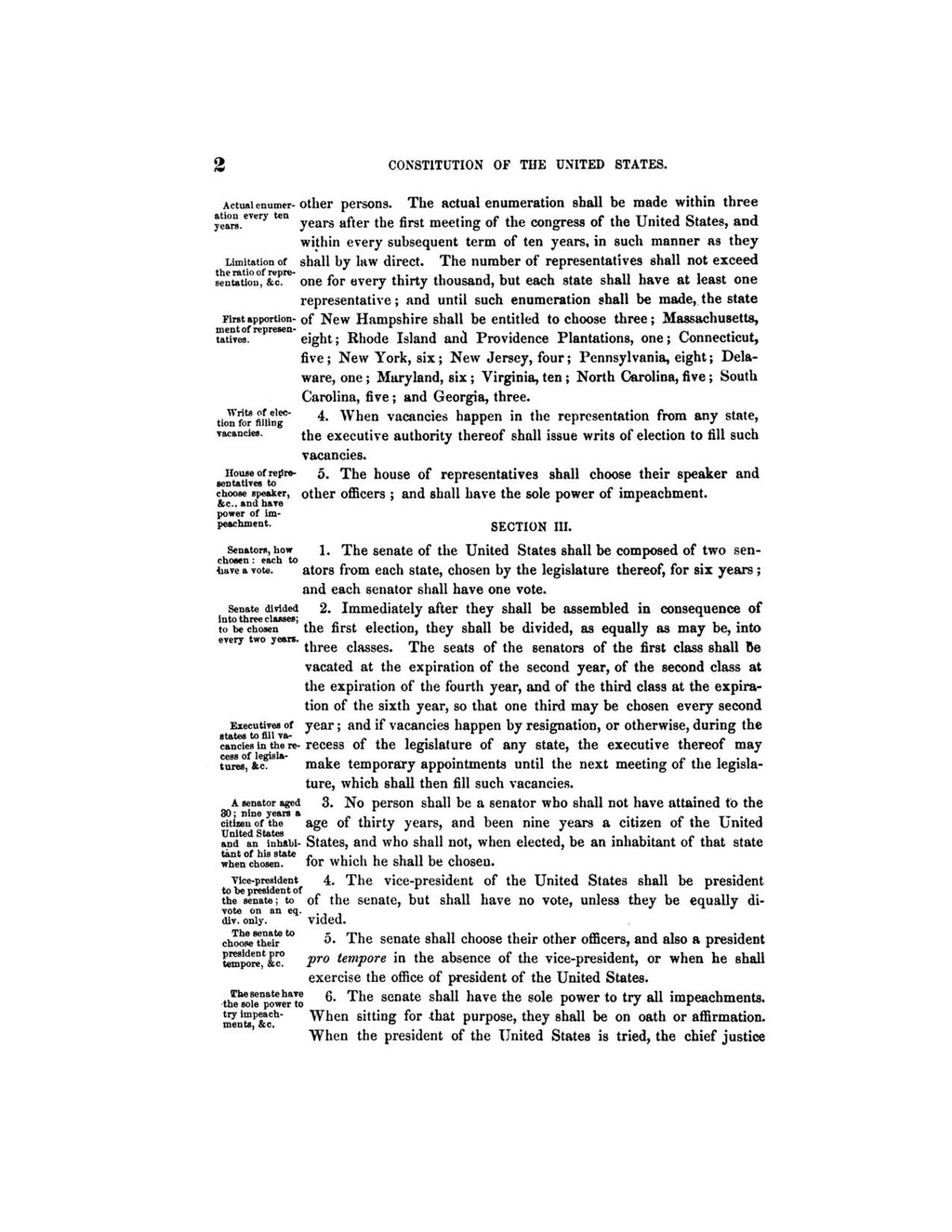other persons. Actual enumeration every ten yearsThe actual enumeration shall be made within three years after the first meeting of the congress of the United States, and within every subsequent term of ten years, in such manner as they shall by law direct. Limitation of the ratio of representation, &c.The number of representatives shall not exceed one for every thirty thousand, but each state shall have at least one representative; and until such enumeration shall be made, First apportionment of representatives.the state of New Hampshire shall be entitled to choose three; Massachusetts, eight; Rhode Island and Providence Plantations, one; Connecticut, five; New York, six; New Jersey, four; Pennsylvania, eight; Delaware, one; Maryland, six; Virginia, ten; North Carolina, five; South Carolina, five; and Georgia, three.
Writs of election for filling vacancies4. When vacancies happen in the representation from any state, the executive authority thereof shall issue writs of election to fill such vacancies.
House of representatives to choose speaker, &c., and have power of impeachment5. The house of representatives shall choose their speaker and other officers; and shall have the sole power of impeachment.
SECTION III.
Senators, how chosen; each to have a vote.1. The senate of the United States shall be composed of two senators from each state, chosen by the legislature thereof, for six years; and each senator shall have one vote.
Senate divided into three classes; to be chosen every two years.2. Immediately after they shall be assembled in consequence of the first election, they shall be divided, as equally as may be, into three classes. The seats of the senators of the first class shall be vacated at the expiration of the second year, of the second class at the expiration of the fourth year, and of the third class at the expiration of the sixth year, so that one third may be chosen every second year;Executives of states to fill vacancies in the recess of legislatures, &c. and if vacancies happen by resignation, or otherwise, during the recess of the legislature of any state, the executive thereof may make temporary appointments until the next meeting of the legislature, which shall then fill such vacancies.
A senator aged 30; nine years a citizen of the United States and an inhabitant of his state when chosen.3. No person shall be a senator who shall not have attained to the age of thirty years, and been nine years a citizen of the United States, and who shall not, when elected, be an inhabitant of that state for which he shall be chosen.
Vice-president to be president of the senate; to vote on a equal div. only.4. The vice-president of the United States shall be president of the senate, but shall have no vote, unless they be equally divided.
The senate to choose their president pro tempore, &c.5. The senate shall choose their other officers, and also a president pro tempore in the absence of the vice-president, or when he shall exercise the office of president of the United States.
The senate have the sole power to try impeachments, &c.6. The senate shall have the sole power to try all impeachments. When sitting for that purpose, they shall be on oath or affirmation. When the president of the United States is tried, the chief justice